On 24 February 2022, Moscow launched its Northeastern offensive for the control of two regions (oblasts) in Ukraine – Chernihiv Oblast and Sumy Oblast. Russia planned to take the administrative capitals – Chernihiv and Sumy, but ultimately failed. Chernihiv was under siege for more then five weeks while Sumy was the theater of heavy urban fighting between Ukrainian soldiers and the Russian forces.
70% of Chernihiv destroyed as Russian troops retreat & civilians leave bomb shelters
As the Russian army rolled through the countryside in their advance on Kyiv, they occupied many villages and towns along the way, terrorizing the local population, looting, plundering and carrying out random executions.
When Russian troops captured the village of Stary Bykiv, they executed six civilians, who were simply in the wrong place at the wrong time.
In the neighboring village of Novy Bykiv, the Russian military set up a torture chamber that held about 40 locals prisoner.
Stary and Novy Bykiv are neighboring villages connected by a bridge. About 2,000 people live here. The Russian military occupied the school, hospital and kindergarten, and set up headquarters in the bomb shelter of the local community hall. About 100 village homes and almost all the infrastructure were destroyed during the occupation.
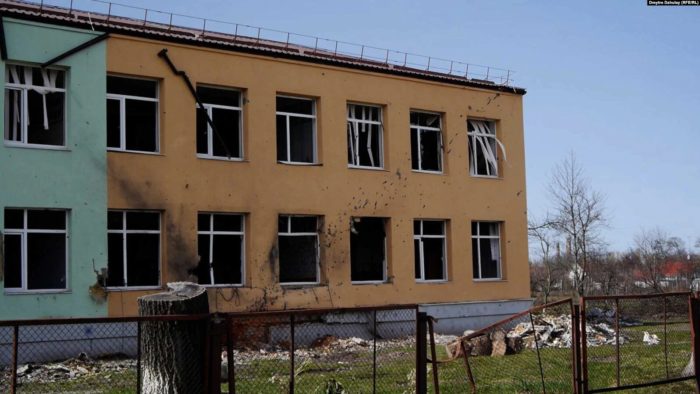
Stary Bykiv: six civilians tortured and shot
The Russian army rolled into Stary Bykiv on 27 February. That same evening, they killed six men who happened to be in their yards or walking along the streets. According to witnesses, these random executions may have been the Russians’ reaction to the Ukrainian military blowing up the bridge and inflicting major damage to the Russian military convoy.
Viktoriya Vovk begged the Russian soldiers to release her son and son-in-law, who had been captured in the family yard. The occupiers said they would release the men after questioning, but little did she realize that her son Bohdan Hladky and son-in-law Oleksandr Mohyrchuk had already been shot.
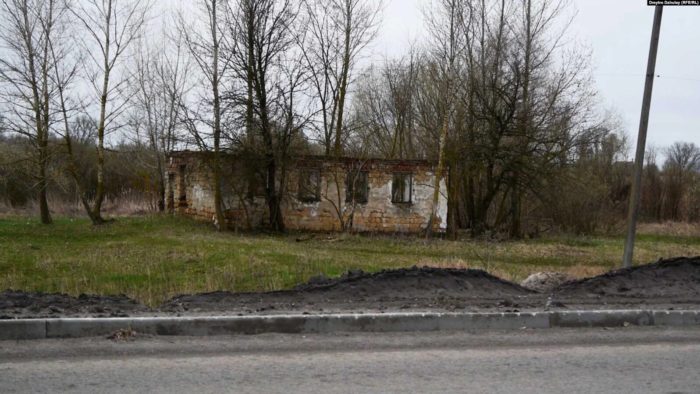
The next day, Victoria Vovk and other villagers found the bodies near an abandoned building. The six men had been shot point blank in the head. However, the Russian military did not allow the villagers to bury their dead immediately. They were forced to wait nine days…
“We covered them with blankets and buried our men as they were,” says Viktoriya, with tears in her eyes.
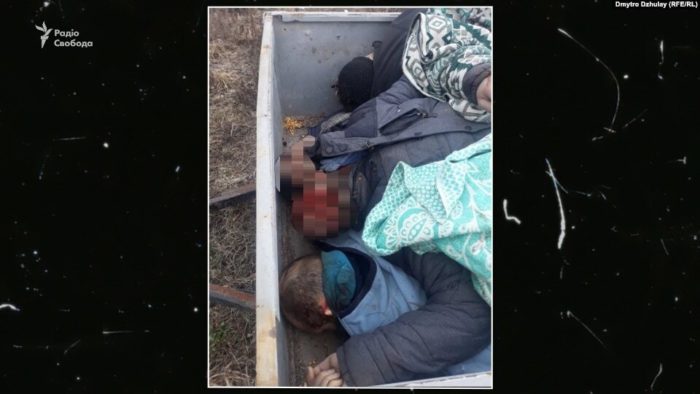
When the Russian troops withdrew from Chrnihiv Oblast, a police task force exhumed the bodies. Forensic investigation revealed that the men had been tortured before being shot.
“They were beaten and tortured… and then executed on the spot. My son-in-law had his carotid artery slashed. My son had terrible bruises on his chest and his ribs were broken,” cries Viktoriya.
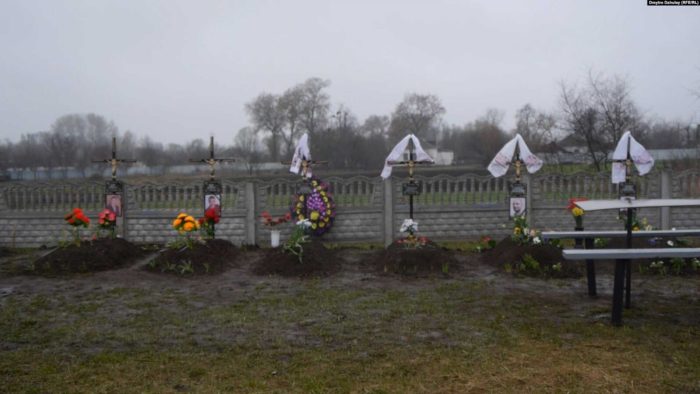
T
he six men executed by the Russian military on February 27 in the village of Stary Bykiv:
- Bohdan Hladky - 29 years old
- Ihor Yavon - 32 years old
- Oleh Yavon - 33 years old
- Oleksandr Mohyrchuk - 38 years old
- Oleksandr Vasylenko - 39 years old
- Volodymyr Putiata - 46 years old
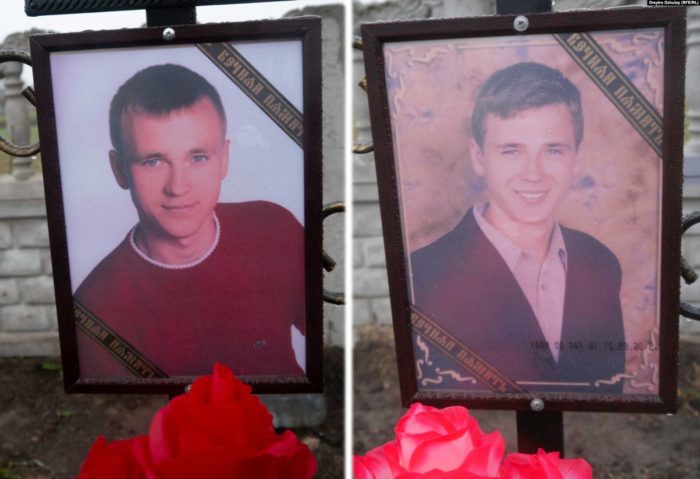
Novy Bykiv: 4 civilians executed
In the neighboring village of Novy Bykiv, the Russian military set up a torture chamber in the boiler room. About 40 villagers were interrogated and tortured in this desolate, dark room.
“They beat the prisoners on the head with glass bottles. They threatened them with machine guns and hit their chests with the gun butts. One soldier put a gun into a villager’s mouth and told him he’d shoot,” said Maksym Didyk, a 21-year-old who was held prisoner for twelve days. The Russians accused him of passing military information to the Armed Forces of Ukraine.
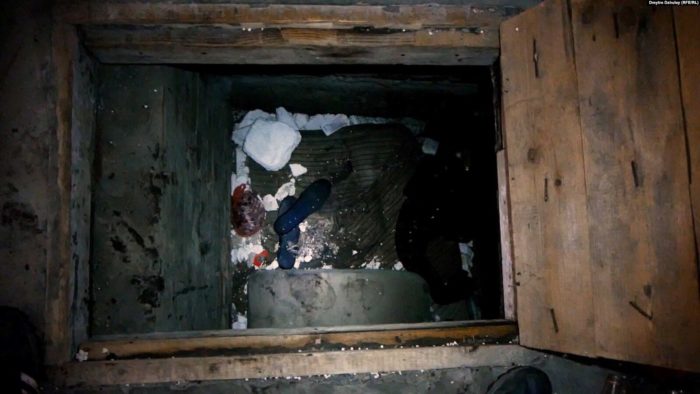
Maksym confirms that the boiler room was used as a torture chamber where civilians were held and interrogated. Only once did he see three Ukrainian servicemen among the prisoners, but has no idea what happened to them.
The Russian guards forced Maksym to do various household chores. They untied his hands and took off his blindfold. Therefore, Maksym was able to see what was happening and can now testify to the atrocities and crimes perpetrated by the Russian army.
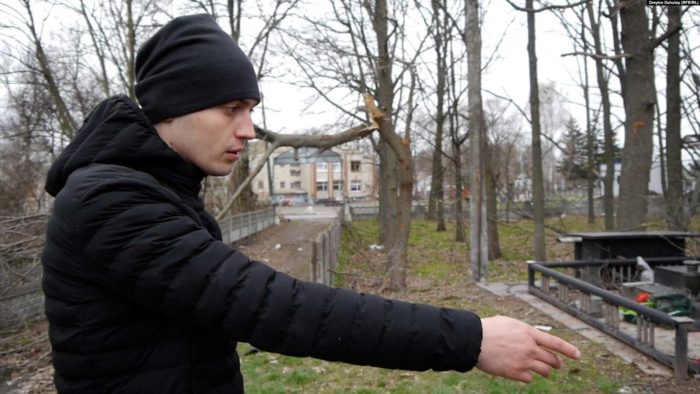
When the Russians began retreating from the village on 29-30 March, a Russian soldier took the prisoners into the yard one by one and shot them.
“I heard gunshots nearby, and then silence. After executing an elderly man, the officer returned to the boiler room and asked me for a rag. There was blood on his boots.” recalls Maksym.
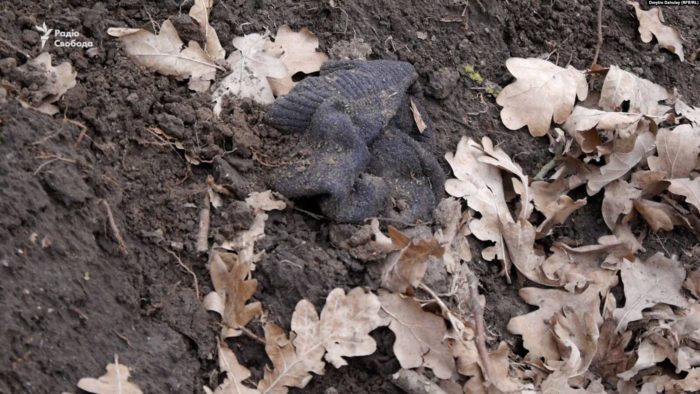
The Russian soldier told Maksym that he had executed four villagers and released the other six. Maksym was one of them.
Immediately after the occupation, the bodies of three murdered men were found in the village cemetery, which lies 100 meters from the boiler room.
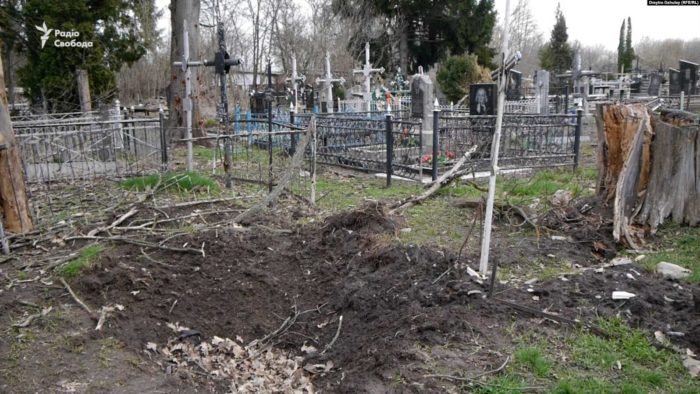
Oleksandr Lysak, a 52-year-old resident of Stara Basan. Lysak was born in Podolsk, Moscow Oblast, RF. According to two prisoners, Lysak asked the Russian guard to give him a cup of coffee. In response, the officer took Lysak outside and executed him.
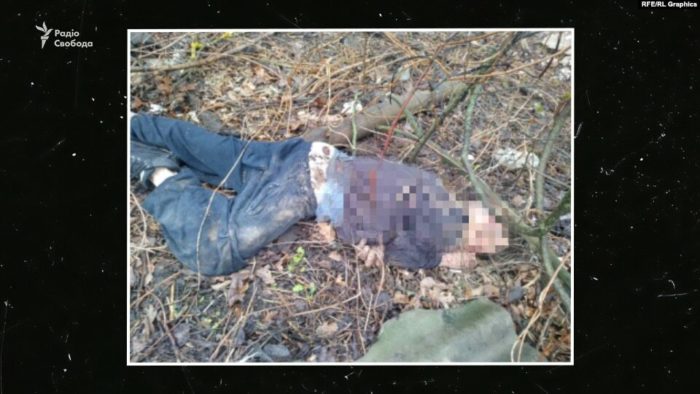
Volodymyr Vovk
, a 38-year-old employee of the orphanage in the village of Stara Basan. He was an orphan and lived alone. The Russian soldiers suspected Volodymyr of being involved in an ambush that killed their driver, but Volodymyr repeatedly denied this. One of the prisoners said that Volodymyr did not speak Russian. This made the Russians very nervous and angry.
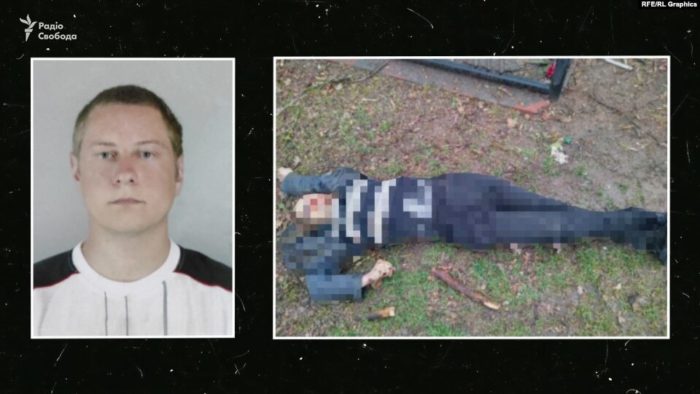
Mykhailo Ivashko, a 64-year-old invalid from the village of Pohrebets, Chernihiv Oblast. Mykhailo suffered from neurological disorders. He was captured on 22 March on his way to a neighboring village. Witnesses say that the Russian officer offered Mykhailo a glass of vodka and asked him to choose someone to be executed in his stead. Mykhailo refused and was killed immediately by the same officer.
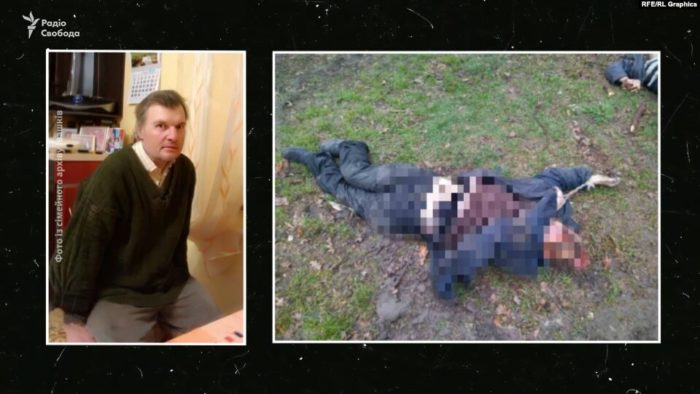
The body of the fourth villager was not found.
Who is responsible for the war crimes in Stary and Novy Bykiv?
Three bullet casings were found at the execution place identified by locals and the other prisoners. According to the markings, it can be established that they were manufactured in 1994 at the Barnaul Ammunition Plant, Altai Krai, Russian Federation.
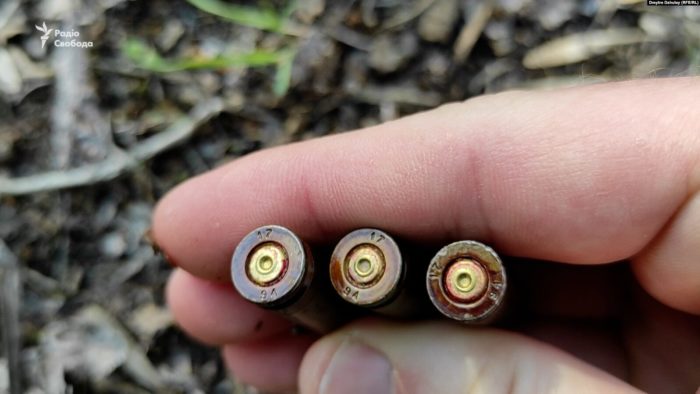
The identity of the Russian soldier who held the villagers captive and carried out the executions has not yet been established.
According to the survivors, he is a Russian national younger than 50 years old. In his conversations with the prisoners, he mentioned that he had served in other wars.
According to sources in the Armed Forces of Ukraine, it was possible to identify the Russian units that were the last to leave Novy Bykiv.
- The 30th Separate Motorized Infantry Brigade of the Russian Federation, deployed in the village of Roshchinskiy, Samara Oblast, RF. The Brigade has a unit armed with 122mm howitzers D-30A, a 23mm anti-aircraft gun ZU-23, and a 122mm Grad MRL. This was one of the first units to invade Ukraine on 24 February.
- The 24th Separate Special Purpose Brigade of the Main Intelligence Directorate of Russia, deployed in Novosibirsk, RF. Soldiers of this Brigade fought in the First and Second Chechen Wars. In addition, about 300 Novosibirsk Special Ops soldiers took part in the war in Syria.
The Russian soldiers made a lot of graffiti on the walls in Novy Bykiv. One stands out - a bat on the wall of the public toilet. The bat, which in Russian military jargon is called “myshka” (little mouse), is the unofficial symbol used by Russian intelligence officers.
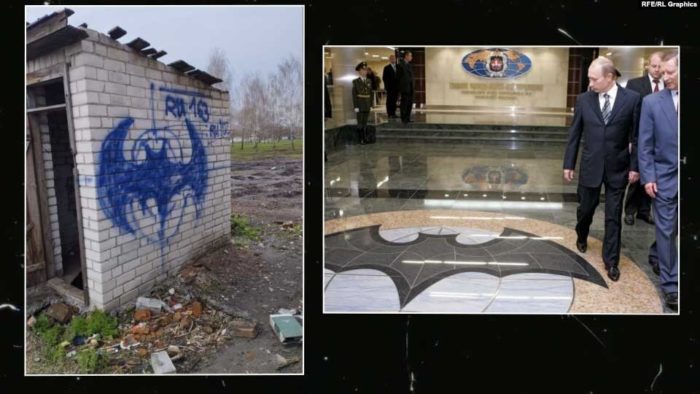
Several prisoners said that the military equipment of the Russian soldiers guarding them was of much better quality than that of the ordinary Russian soldiers they saw on the village streets.
The public toilet with the bat image is located 50 meters from the village community hall, where the Russian military set up headquarters and 10 meters from the boiler room, where the prisoners were held.
Missing civilians
The fate of the two prisoners held by the Russian military is still unknown.
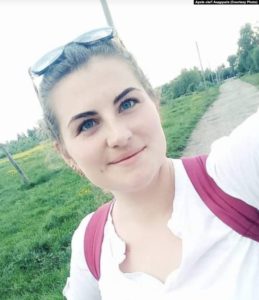
Viktoriya Andrusha
is a 25-year-old math teacher from Brovary who was visiting her parents in Stary Bykiv. She was imprisoned on 25 March by the Russian military, allegedly on charges of transmitting information to the Armed Forces of Ukraine.
Viktoriya Andrusha was held for several days with Maksym Didyk and other prisoners in the boiler room.
“Viktoriya spoke to the Russian guards only in Ukrainian. She said that she was Ukrainian and a patriot. The last time I saw her was on 27 March, and then the Russian soldiers took her somewhere.” states Maksym.
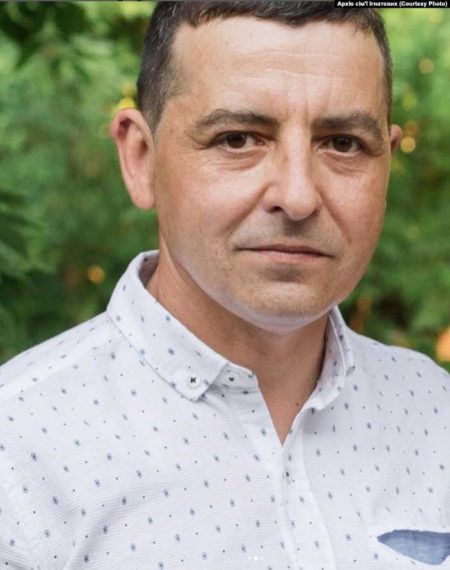
There is also no information about 52-year-old Oleksandr Ihnatov, another villager held by the Russian military in the boiler room in Novy Bykov.
Two years ago, Oleksandr was hit by a car. He fell into a coma, recovered, but suffers from partial amnesia and has memory problems. According to the other prisoners, Oleksandr Ihnatov was savagely beaten by the Russian soldiers.
On 4 April, the Ukrainian Army recaptured the villages of Kolychivka, Yahidne and Ivanivka. Regional Governor Vyacheslav Chaus stated that the Russian military had left Chernihiv Oblast, but that the region was contaminated with landmines.
On 5 April, the Russian army withdrew completely from Chernihiv Oblast and fighting in the region ceased. However, devastation remained. Authorities are now documenting Russia's war crimes in Chernihiv Oblast.
What Ukrainian forces find in the wake of the retreat of the Russian army is truly horrifying and chilling to the bone - devastation, executions, mass burials, tales of rape… and more.
As they retreat, the Russians indiscriminately blow up bridges, loot farms and homesteads and destroy them, steal medical equipment from hospitals, plunder and wreck private homes and apartments. What happens with civilians in the months of occupation is indescribable and must be duly investigated, documented and delivered to the International Criminal Court (ICC), the European Court of Human Rights (ECHR)and the UN Human Rights Council.
Read more:
- 70% of Chernihiv destroyed as Russian troops retreat & civilians leave bomb shelters
- Like Napoleon’s 1812: why Russian troops retreated from northern Ukraine
- Making Russia answer for destroying cultural heritage in Ukraine
- Martyred city of Mariupol wiped out of existence by Russia’s incessant shelling
- “Close the sky!” or how Russia bombed out my town of Borodyanka

